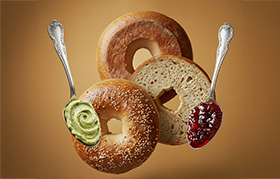
ORION’s Global Multi-Level Ambidextrous Strategy
Same Brand, Different Flavors!
A “Bury Our Bones” Localization Strategy
Chang Jae-woong | No.406 (December 2024 Issue 1)
Article at a Glance
Orion is poised to surpass 3 trillion KRW in annual revenue this year, driven not just by success in core markets like China, Vietnam, and Russia, but also by exceeding expectations in newer markets such as the U.S. and Australia. At the heart of this achievement is a “multi-level ambidextrous strategy” that balances global standardization with keen local adaptation.
Orion initially introduced its signature product, Choco Pie, in diverse markets with minimal modifications, then quickly established local production bases and customized offerings as consumer demand grew. Maintaining a strict cash-based policy enabled steady profits and reinvestment even where rivals struggled with collections. Meanwhile, the company upheld strict quality standards—“good products come from good ingredients”—while rigorously controlling costs to ensure a low-cost, high-quality model.
Autonomy for overseas subsidiaries and a focus on local workforce development further solidified global footholds. By deploying expatriates committed to long-term service—“burying their bones” in local markets—Orion ensured that its leadership deeply understands, and resonates with, each region’s unique consumer landscape.
In February, Mashed, a U.S.-based food media outlet, published an article titled “The Best and Worst New Products to Buy at Costco in 2024,” naming a snack from a Korean company as one of the best new products. That snack was Orion’s Turtle Chips, known locally in Korea as “Kkobuk Chip.” Mashed noted in the article, “The reason this snack became a hit is that it combines three of humanity’s favorite flavors: sugar, chocolate, and cinnamon,” adding that “its light and crispy texture makes it hard to put the bag down.”
For Koreans, the product most associated with Orion is Choco Pie. This answer would likely be the same in Orion’s major markets, such as China, Vietnam, and Russia. However, this formula might soon be challenged. This can be attributed to the recent Kkobuk Chips craze sweeping across markets like the United States, Australia, and Mexico.
In fact, the popularity of Turtle Chips in the U.S. is remarkable. It has gained traction among the local Generation Z and Millennial demographic through word of mouth. The results are clear: Orion earned 28 billion KRW in exports to the U.S. last year, nearly half of which—12 billion KRW—came from Turtle Chips alone. Since entering Costco in 2019 and Sam’s Club in 2021, Turtle Chips expanded to major retail chains such as Five Below and Miniso across the U.S. in March this year. Buoyed by Turtle Chips’ strong local popularity, Orion is even considering establishing a production facility in the U.S. Another indicator of Turtle Chips’ success in the U.S. is the launch of a copycat product called “Layers” by global snack company Frito-Lay, which was reportedly inspired by Turtle Chips’ success.
Orion is poised to surpass 3 trillion KRW in annual revenue this year, driven not just by success in core markets like China, Vietnam, and Russia, but also by exceeding expectations in newer markets such as the U.S. and Australia. At the heart of this achievement is a “multi-level ambidextrous strategy” that balances global standardization with keen local adaptation.
Orion initially introduced its signature product, Choco Pie, in diverse markets with minimal modifications, then quickly established local production bases and customized offerings as consumer demand grew. Maintaining a strict cash-based policy enabled steady profits and reinvestment even where rivals struggled with collections. Meanwhile, the company upheld strict quality standards—“good products come from good ingredients”—while rigorously controlling costs to ensure a low-cost, high-quality model.
Autonomy for overseas subsidiaries and a focus on local workforce development further solidified global footholds. By deploying expatriates committed to long-term service—“burying their bones” in local markets—Orion ensured that its leadership deeply understands, and resonates with, each region’s unique consumer landscape.
In February, Mashed, a U.S.-based food media outlet, published an article titled “The Best and Worst New Products to Buy at Costco in 2024,” naming a snack from a Korean company as one of the best new products. That snack was Orion’s Turtle Chips, known locally in Korea as “Kkobuk Chip.” Mashed noted in the article, “The reason this snack became a hit is that it combines three of humanity’s favorite flavors: sugar, chocolate, and cinnamon,” adding that “its light and crispy texture makes it hard to put the bag down.”
For Koreans, the product most associated with Orion is Choco Pie. This answer would likely be the same in Orion’s major markets, such as China, Vietnam, and Russia. However, this formula might soon be challenged. This can be attributed to the recent Kkobuk Chips craze sweeping across markets like the United States, Australia, and Mexico.
In fact, the popularity of Turtle Chips in the U.S. is remarkable. It has gained traction among the local Generation Z and Millennial demographic through word of mouth. The results are clear: Orion earned 28 billion KRW in exports to the U.S. last year, nearly half of which—12 billion KRW—came from Turtle Chips alone. Since entering Costco in 2019 and Sam’s Club in 2021, Turtle Chips expanded to major retail chains such as Five Below and Miniso across the U.S. in March this year. Buoyed by Turtle Chips’ strong local popularity, Orion is even considering establishing a production facility in the U.S. Another indicator of Turtle Chips’ success in the U.S. is the launch of a copycat product called “Layers” by global snack company Frito-Lay, which was reportedly inspired by Turtle Chips’ success.
15,000개의 아티클을 제대로 즐기는 방법
가입하면, 한 달 무료!
걱정마세요. 언제든 해지 가능합니다.
- This content was originally written in Korean in the DBR, and translated into English by the original author with the aid of AI
- The DBR has all legal authority over this content. Please note that unauthorized use and distribution may be subject to legal sanctions

Copyright Ⓒ 동아비즈니스리뷰. All rights reserved. 무단 전재, 재배포 및 AI학습 이용 금지
인기기사
 경제·경영 질문은
경제·경영 질문은
Askbiz에게 물어보세요
K-FOCUS TOP 5
K-Business Trends to Watch
회원 가입만 해도, DBR 월정액 서비스 첫 달 무료!
15,000여 건의 DBR 콘텐츠를 무제한으로 이용하세요.










